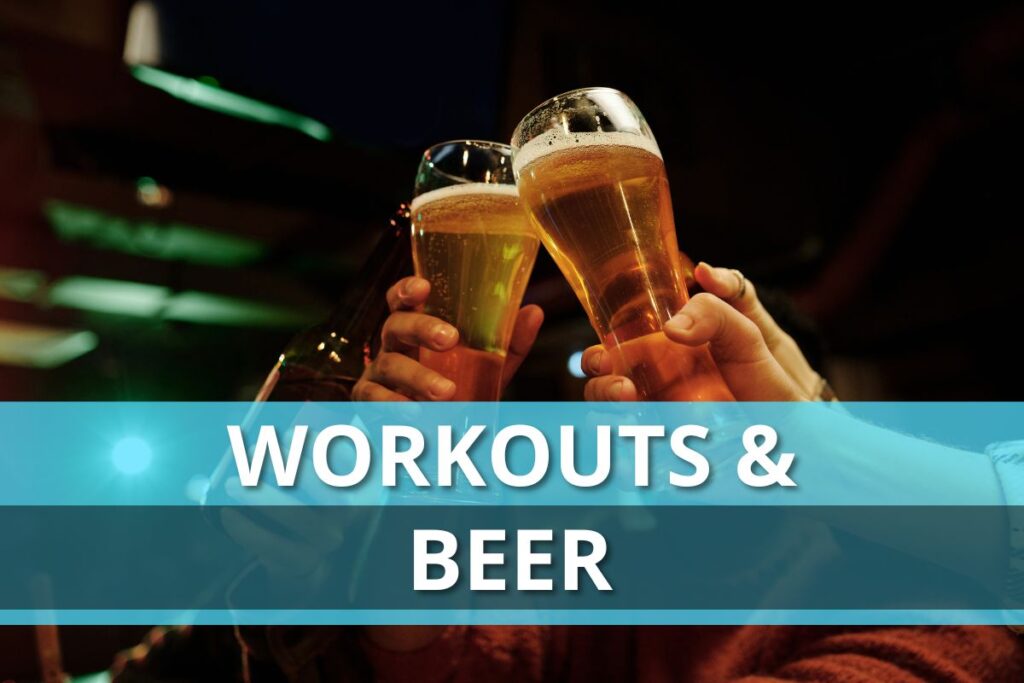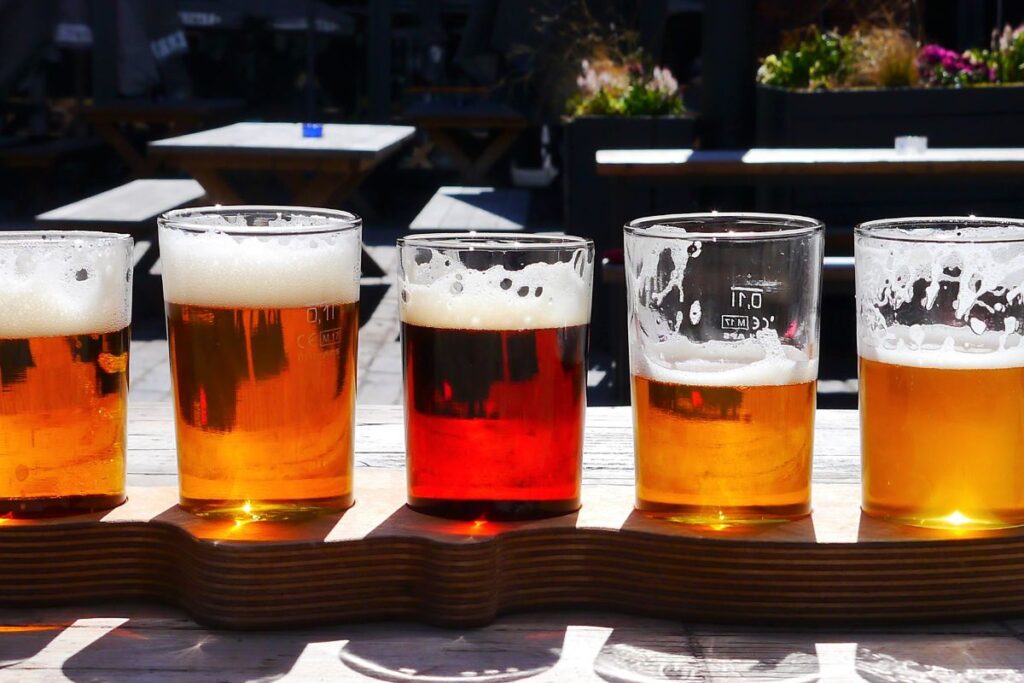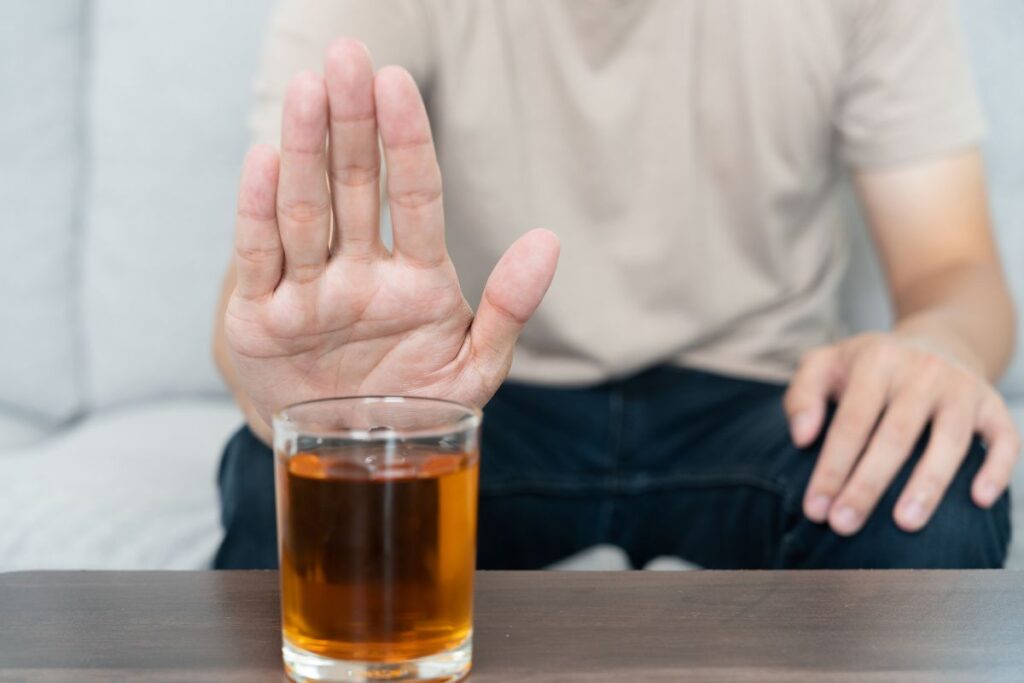Workouts & Beer
Author:
Unlock your full potential by engaging with our experts and community! Have questions about your fitness journey or looking for expert advice on weightlifting techniques? Don’t hesitate — leave a comment below and Sergii Putsov will provide a personalized answer and insights to help you reach your goals.
Torokhtiy is reader-supported. Some links are affiliate links, and we may earn a commission at no extra cost to you. See our disclosure page for details.

Beer and fluid balance
The first thing I can state for sure is that the effect of beer in sport is scarcely explored, as you will hardly find anyone willing to perform alcohol-related experiments with the training athletes. But several studies revealed the impact of beer on body fluid balance replenishment.
We are sweating hard during our workouts and competitions. As it has been known even a small degree of dehydration reduces our physical workability and negatively affects motor skills. And when we lose up to 2% of bodyweight to dehydration the physical workability is dramatically diminished.
So why I’m telling you all this and what does it have to do with beer? The thing is that alcohol prevents the release of the antidiuretic hormone which regulates body fluid retention. The oppression made by alcohol over this hormone leads to kidneys accelerated urine production and frequent toilet visiting. And all these things facilitate dehydration. Putting it in simple terms – alcohol is a diuretic, but the effect may vary depending on the type of booze.
Hard alcohol and tricks of our body
Interestingly, the pronounced diuretic effect was achieved only with drinks containing alcohol not less than 4%! When participants drank beer with 0,1 and 2% alcohol content it produced no effect on frequent urination. One study has even shown that beer with 2,3% alcohol content even increased the hydration level after the control loads. Thus light beer has no diuretic effect.
You may like it:
Moreover, our body is a complicated yet genial thing, and you will get to know why. When we are stricken by dehydration due to physical loads, the diuretic effect of 4% beer is reduced. That’s a mechanism our body launches to recover water-electrolyte balance and it consumes fluid even from 4% alcoholic beverage.

Also, we can reach a compromise and drink alcohol-free beer if we desire. In one study 7 football players consumed 700 ml of beer (4,6%), alcohol-free beer or water 45 minutes before physical loads. Results displayed that alcohol-free beer influenced the kidneys to function the same way as water.
It’s fair to say that alcohol-free beer is the compromise option for those enjoying beer taste and flavor but who don’t like water. Yes, sure the taste of alcohol-free beer is less saturated than traditional one, but at least this is better than nothing.
BEER-HIIT Study
In 2020 the study with the codename «BEER-HIIT Study» was released, observing the influence of moderate alcohol consumption on the physical condition of young people involved in HIIT workouts. The participants carried out 2 HIIT workouts weekly for 10 weeks in total.
73 participants were divided into 5 groups: 4 groups worked out, 1 group was not involved in the training. Participants of experimental groups were provided a choice of drinks – alcohol or alcohol-free beverages (including alcohol-free beer). The ones who picked up alcohol drank either beer (5,4%) or vodka diluted with soda water (to the same 5,4% alcohol content point). Men consumed 330 ml of alcoholic beverages at lunch and dinner while women consumed only 1 portion of alcohol at dinner time. I should remark that alcoholic beverages were served from Monday to Friday periods only.
The indices of VO2max level, maximal heart rate and hand grip strength as well as total workout length and 4 types of vertical jumps were measured before and after the experiment.

All the experimental groups showed significant improvement of VO2max level which is considered the key index of physical fitness. Also, all these groups displayed a stable increment in workout length.
The consumption of beer or vodka for 10 weeks did not affect the studied indices. Thus the conclusion that the consumption of moderate amounts of beer/alcohol had no significant negative impact on the positive effect provided by HIIT in physical fitness of the young people was made.
Maybe that’s why athletes involved in functional fitness like to drink beer straight during the competition while maintaining a great result.
The placebo effect
Such things as the placebo effect should not be written off. There are many rumors and myths that can be traced back to the years 80th and 90th of the previous century among weightlifters. If some guy is able to bottom-up 1 liter of beer and then perform a 250 kg squat, it doesn’t mean that such capability was caused by alcohol.
The case is probably in attitude or psychology. If beer makes us more confident and tuned-up it can probably be some kind of a trigger. If you feel good after drinking beer, why not go and try lifting this darn heavy weight?
Let’s be honest. Our sport is a place for physically strong men that can lift several hundred kilos even if they’ve been hanging out and drinking all night long. Many of us are naturally gifted with a perfect physical condition. So 1 or 2 bottles of beer before or during the competitions is no big deal. It’s not a call to drink beer if you don’t do this. You don’t have to start drinking it unless you already do – that’s my advice to you!

Alcohol is no helper for an athlete
Despite the volume and strength alcohol is an ergogenic substance for weightlifters. The benefit/risk ratio is inclined towards the risk when we drink beer before or during the workouts/competitions.
Alcohol is also a well-known depressant that reduces the central nervous system excitability. And the more we drink the more evident becomes the influence of alcohol on our results.
Stanford University experts remark the negative impact of alcohol on several indices:
- Balance and coordination;
- Motor skills (fine and complex);
- Reaction speed;
- Decision-making speed.
The diuretic feature of the beer also reduces its value as a beverage for rehydration. Don’t let the aforementioned study results mislead you. Beer is surely not the optimal option to replenish the fluid loss during the physical loads.
So, what’s the conclusion? I think that a moderate amount of light beer (0,3-0,5 liter, 4% or below) prior, during and after the workout probably won’t have any impact upon workability and recovery. But this is not a call for drinking it.
There is also a compromise variant – an alcohol-free beer if you have no prejudices about this drink. Also keep in mind that besides beer, you must drink big amounts of water to avoid dehydration.
Related articles:
You might be interested in:
Why Trust Us?
With over 20 years in Olympic weightlifting, strength training, nutrition coaching, and general fitness our team does its best to provide the audience with ultimate support and meet the needs and requirements of advanced athletes and professional lifters, as well as people who strive to open new opportunities and develop their physical capabilities with us.
By trusting the recommendations of our certified experts in coaching, nutrition, and sports training programming, as well as scientific consultants, and physiotherapists, we provide you with thorough, well-considered, and scientifically proven content. All the information given in the articles concerning workout programming, separate exercises, and athletic performance, in general, is based on verified data.
The product testing process is described in more detail here.
Author: Sergii Putsov
Head of Sport Science, PhD
Best Results: Snatch – 165 kg,
C&J – 200 kg
Sergii Putsov, Ph.D., is a former professional weightlifter and National team member, achieving multiple medals in the 94 kg weight category at national competitions. With a Master’s degree in “Olympic & Professional Sport Training” and a Sport Science Ph.D. from the International Olympic Academy, Greece, Sergii now leads as the Head of Sport Science. He specializes in designing training programs, writing insightful blog articles, providing live commentary at international weightlifting events, and conducting educational seminars worldwide alongside Olympic weightlifting expert Oleksiy Torokhtiy.




Still have questions after reading our article? Unlock your full potential by engaging with our experts and community! Don’t hesitate — leave a comment below and Sergii Putsov will provide a personalized answer and insights to help you reach your goals.